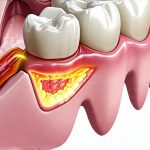Gastroesophageal reflux disease (GERD) is a common condition affecting millions worldwide, characterized by persistent acid reflux – the backflow of stomach acid into the esophagus. While heartburn is often considered the hallmark symptom, GERD can manifest in surprisingly diverse ways, impacting not only digestive health but also seemingly unrelated areas like oral hygiene and breath quality. Understanding this connection between GERD and bad breath (halitosis) is crucial for effective management and improving overall well-being.
Many individuals experiencing chronic bad breath attribute it solely to poor dental practices or dietary choices. However, in some cases, persistent halitosis can be a symptom of underlying medical conditions, with GERD being among the more common culprits. This article will explore the intricate relationship between GERD and bad breath, detailing the causes behind this connection and offering potential remedies for those seeking relief.
Understanding the Connection
The link between GERD and bad breath isn’t always immediately obvious. It stems from the fact that stomach acid, when it refluxes into the esophagus, can carry partially digested food and bacteria upwards. This process introduces a unique environment in the mouth, fostering conditions conducive to unpleasant odors. Furthermore, chronic exposure to acid can impact oral health itself, creating additional sources of halitosis.
Essentially, GERD isn’t just about heartburn; it’s about a disruption of the digestive process that can have ripple effects throughout the body, including noticeable changes in breath odor. Recognizing this connection is the first step towards addressing both issues simultaneously.
The Role of Stomach Acid & Oral Health
GERD involves frequent episodes of stomach acid rising into the esophagus and sometimes even reaching the mouth. This acidic environment disrupts the natural bacterial balance within the oral cavity, potentially leading to an overgrowth of anaerobic bacteria – those that thrive in low-oxygen environments. These bacteria are notorious for producing volatile sulfur compounds (VSCs), which are major contributors to bad breath.
How GERD Impacts Breath Odor
The specific composition of stomach contents plays a role too. Partially digested proteins, for instance, can contribute more significantly to odor production when they reflux into the mouth. Additionally, the act of regurgitation itself introduces food particles and bacteria that would normally be processed further down the digestive tract, providing ample fuel for odor-causing microbes in the mouth.
Esophageal Inflammation & Halitosis
Chronic acid reflux can cause inflammation within the esophagus (esophagitis). This inflammation isn’t limited to the esophageal lining; it can extend towards the throat and even affect the upper airways. Inflamed tissues are more prone to harboring bacteria, and this localized inflammation itself can contribute to altered breath odor. The presence of postnasal drip associated with esophagitis also provides a medium for bacterial growth and increased odor production.
Dental Implications & Bad Breath
Prolonged exposure to stomach acid can erode tooth enamel over time, increasing the risk of cavities and gum disease. Both cavities and gum disease are well-known causes of halitosis. Even if dental hygiene is impeccable, the weakened state of teeth due to acid erosion makes them more susceptible to bacterial colonization and odor production. This creates a vicious cycle where GERD contributes to oral health problems that then exacerbate bad breath.
Ultimately, addressing bad breath related to GERD requires a multi-faceted approach that tackles both the underlying reflux issue and its consequences for oral health. Good dental hygiene remains essential, but it’s often insufficient without managing the GERD itself. Lifestyle modifications, dietary adjustments, and potentially medical interventions are key components of an effective strategy.


















